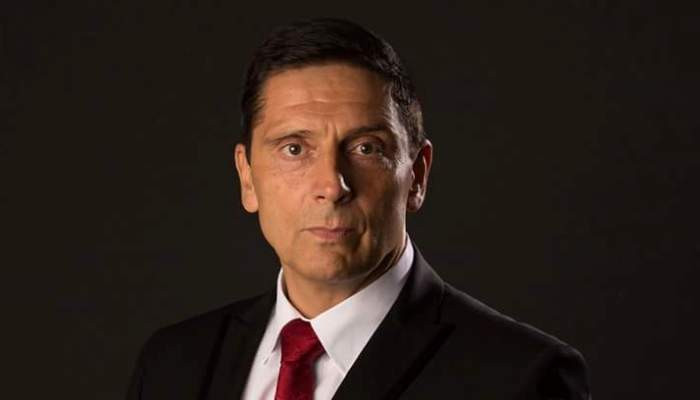Serbian opposition leader left partly paralysed by attack, say family
 2161 Thursday, 11 January, 2024, 20:18 The family of a Serbian opposition leader who was allegedly beaten up while in detention by the country’s secret service say he has been left partly paralysed by the attack. In an assault that has fuelled fears about the future of democracy in the country, Nikola Sandulović’s family say he was taken from his home on 3 January after making an apology for crimes committed by Serbs against ethnic Albanians during the Kosovan war of independence in 1998 and 1999. “He is communicative but he is paralysed completely on the right side; in a wheelchair, and in a very very poor health condition,” she said in a statement issued via Michael Polak, a barrister in the UK and the director of Justice Abroad, who is acting for the politician. The family believe Sandulović, the leader of the Serbian Republican party and regular critic of the ruling Serbian Progressive party (SNS), may also have been “poisoned”, she added. Lawyers have said they cannot verify anything about Sandulović’s health or the attack until they get him to a civilian facility with full access to doctors and lawyers. Polak has filed an urgent case with the UN Committee Against Torture formally requesting such a move. He has said Sandulović was “seized by the Serbian intelligence service then arbitrarily detained and tortured.” The Serbian government has been approached for comment. Sandulović was fiercely criticised in state media after reposting a video from last year in which he visited the grave of Adem Jashari, a founder of the Kosovo Liberation Army who was killed by Serbian police in 1998 along with 57 members of his family during the Kosovan war of independence. At the time of his original gesture, in February 2023, Sandulović apologised for the deaths. He reposted the video along with another apology in the past fortnight prompting criticism by some local media. “I am the only politician from Serbia who came to pay his respects to the innocent Albanian victims, the Jašari family, at Prekazi. I apologised and asked for forgiveness on behalf of the Serbs who did not commit this,” Sandulović wrote on X on 2 January. His comments are believed to be the reason for the attack. “He was badly beaten. He has a broken rib. When he was returned home he was going in and out of consciousness and he was complaining of not being able to move the right side of his body,” said Polak. Despite this, Sandulović was arrested the day after being returned to his home by Serbian police and was not seen by his family until Wednesday morning. A judge ordered he be detained for 30 days after being charged, in absentia, with allegedly inciting national, racial and religious hatred, an offence under article 317 of the criminal code of conduct that can carry a prison sentence of between six months and five years. Polak says the charge is a clear breach of the European convention on human rights protecting political speech. The attack will raise fresh questions about Serbia’s stated intention to join the EU and fuel fears over its relations with neighbouring countries including Kosovo. It comes amid allegations that the recent elections were rigged in favour of President Aleksandar Vučić’s SNS, an accusation Vučić denies. Acknowledging Serbia’s political febrility, Polak nonetheless urged the international community to condemn the attack on his client. “Political speech much be protected. Without any allowance for political speech you harm the functioning of democracy. I think it’s a very important case for all Serbian people, whether they agree with Sandulović’s gesture or not,” he said. In a statement on Wednesday, the European Commission said it was “in contact with the relevant authorities and stakeholders.” Any detention had to be legally justified and “any credible allegations of violence should be effectively followed up by the relevant competent authorities,” it added. |

Iranian authorities release list of names of 2,986 victims of unrest
607Yesterday, 10:12
Axios: Trump remains open to a diplomatic solution with Iran
846Yesterday, 00:50
AI Agents Launched a Social Network and Spawned a Digital Religion Overnight
99701.02.2026, 20:18
Iranian drone conducts reconnaissance over Gulf of Oman amid military drills
82501.02.2026, 18:43
Serbian president warns of US strikes on Iran within 48 hours
94801.02.2026, 18:04
A senior Iranian security official said Saturday that a structure for talks with the United States is being set up
88131.01.2026, 23:33
Massive trove of Epstein files released by DOJ, including 3 million documents and photos
120431.01.2026, 19:40
Israeli officials deny involvement as two blasts rock Iran
89831.01.2026, 19:07
